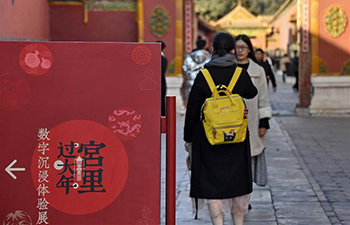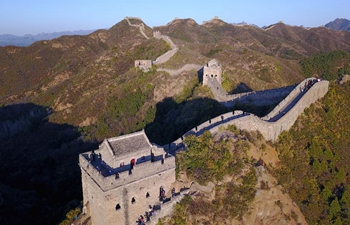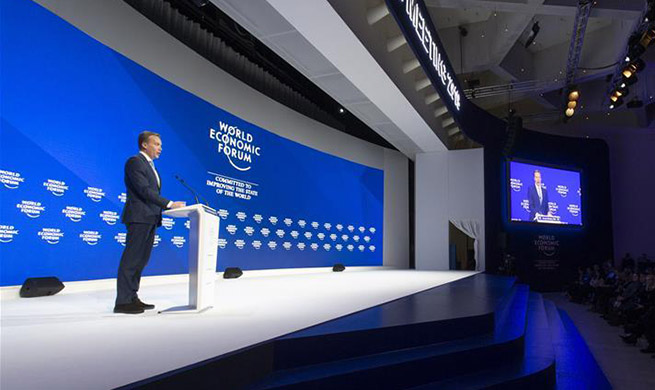BEIJING, Jan. 26 (Xinhua) -- Although Chinese indicators signaled signs of loss in consumption, economists said the sector will remain a stabilizer and a major engine for the economy.
Despite slower growth in retail sales in 2018, Zhu Haibin, J.P. Morgan chief China economist, remained upbeat about China's consumption growth.
Zhu attributed last year's slower consumption growth to weak auto sales, which dropped 2.76 percent from 2017 as its first annual decline in more than two decades.
Consumption, excluding auto sales, has maintained stable increase and helped stabilize economic growth last year, Zhu said.
The country's consumption contributed 76.2 percent to GDP growth last year. Retail sales, a main gauge of consumption, rose 9 percent from one year earlier, down from an increase 10.2 percent registered in 2017.
Policies to boost consumption are in the pipeline. The country will encourage auto and electrical home appliance consumption according to local situations, providing greater policy support where conditions permit to meet people's demand for green, smart automobiles and home appliances, according to a statement released last week after a meeting by the National Development and Reform Commission, the Ministry of Commerce and the State Administration for Market Regulation.
Policies will also be unveiled to increase the supply of high-quality products and services and strengthen residents' spending power with measures such as special individual income tax deductions.
"We expect consumption to remain the largest driver of the economy in the next decade," said Ding Shuang, an economist of the Standard Chartered Bank, citing great potential consumption to continue to grow faster than investment amid the ongoing trends of urbanization, aging and a rising middle-income group that demands quality goods and services.

















